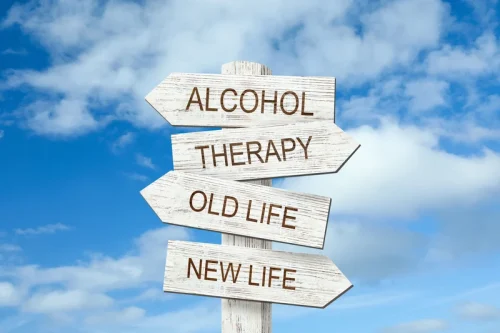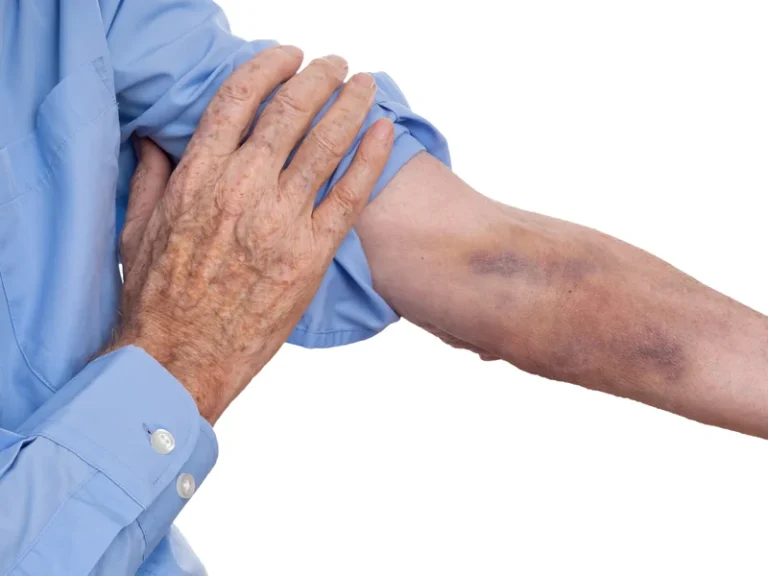
The results show that the clock ticks faster among heavy alcohol drinkers but slower among light to moderate drinkers. Normal aging also appears to lead to a steady decline in the general cortical area (with the greatest decline occurring in the prefrontal cortex) and a concurrent enlargement of the ventricles. Nevertheless, several studies have demonstrated that these signs of cerebral atrophy are greater in alcoholics than in nonalcoholics of the same age (Pfefferbaum et al. 1992, 1998).
Alcohol consumption linked to accelerated biological aging

Of these, only the MS/DB showed an age–alcohol interaction after adjustment for normal age, and the nucleus accumbens volume deficit was far greater in recent drinkers compared with longer-sober AUD subjects. While the causal relationship between frequent and heavy alcohol consumption in older adults and cognitive decline is not certain, research has shown a correlation between the two, especially in men. Chronic alcohol use also can damage the brain and exacerbate the effects of certain diseases.
Changes in Cognition in the Aging Brain
Many alcohol consumers consume it on a regular basis, but on a low to moderate level. For instance, Moussa et al. (2015) found no observable cognitive decline in working memory and attention of older adults, who are regularly drinkers on a low to moderate level. If the Baby Boomers consumed alcohol at the same levels as the prior generation, the sheer size of the group would lead to a significant increase in alcohol-related harms, including injuries, alcohol use disorder (AUD), and deaths among older people.
About this AUD, genetics, and aging research news
Because of the inconsistency in the literature of whether alcohol consumption preserves cognitive functions in the aging brain or whether it accelerates cognitive decline, it is crucial to consider individual contributing factors such as culture, health and lifestyle in future studies. In addition, pharmacological tolerance and intensifying the dose of intake can lead to neuroinflammation and neural death (reviewed in Alfonso-Loeches and Guerri, 2011). The first studies that were conducted with tomographic scanning showed in vivo evidence for changes in brain plasticity in heavy drinkers (Jernigan et al., 1982; Pfefferbaum et al., 1988). Alcoholics and heavy drinkers have been shown to possess enlarged ventricles, whereas their overall brain volume, especially gray matter, is reduced (Kubota et al., 2001). Moreover, loss of gray matter positively correlates with years of alcohol abuse (Fein et al., 2002).

The most convincing age effects occurred in samples in which the older AUD participants had late-onset AUD and had consumed similar amounts of alcohol over a lifetime as younger AUD participants (Pfefferbaum et al., 1992, 1997). Thus, the observed age-related volume deficits could not be attributed to longer drinking histories or to more alcohol drunk by the older relative to the younger AUD study does alcohol accelerate aging participants. Finally, future studies of epigenetic aging in ALC might consider analysis of longitudinal data, especially after a period of treatment or sobriety, to investigate the stability of age acceleration in different tissue types in this population. The epigenetic clock uses an algorithm based on 353 CpG sites to estimate DNA methylation age and is valid across different tissue types.
Similarly, no differences in BACs existed between the aged and younger rats on any of the test days in the study by Spencer and McEwen (1997). Paradoxically, those same intoxicating levels of alcohol also can induce excessive secretion of an important class of stress hormones, the glucocorticoids. (For a discussion of stress hormone production, see the sidebar entitled “ Regulation of Stress Hormone Production,” pp. 276–277.) Yet chronic alcohol exposure can trigger a tolerance to alcohol’s effects on the body’s stress response.

Volume deficits selective to the ventral lateral posterior thalamic nucleus were also found in non-WKS AUD (Zahr, Sullivan, Pohl, Pfefferbaum, & Saranathan, 2020). In addition, nodes of frontopontocerebellar circuitry showed graded effects (Le Berre et al., 2014; Sullivan & Pfefferbaum, 2009). Although many of these brain regions demonstrated age-accelerated volume deficits in the uncomplicated AUD, accelerated aging did not characterize the WKS deficits. The question remained, then, whether alcohol-related WKS is a discontinuous condition from AUD without WKS, or whether those with AUD who show age-related declines carry an occult, less severe form of WE-like thiamine deficiency.
These findings suggest that at least for some people, aging leads to an increased risk of alcohol abuse. Whether this increased risk results from age-related psychosocial factors (e.g., loss of a spouse, retirement, or loneliness) or changes in the physiological response to alcohol (or a combination of the two) remain to be determined. As described in detail in the sidebar entitled “ Chronic Alcohol Consumption and Aging” (see pp. 281–283), considerable evidence suggests that a two-way interaction exists between alcohol abuse and aging. On the one hand, aging may alter a person’s physiological and psychological responses to alcohol. On the other hand, chronic alcohol use may alter the aging process, as indicated by several studies that found evidence for premature or exaggerated aging in chronic heavy drinkers (Evert and Oscar-Berman 1995; Noonberg et al. 1985; Pfefferbaum et al. 1992). The dataset of PFC tissue showed negative age acceleration in those with a diagnosis of ALC/alcohol abuse and positive age acceleration in healthy controls, but the averages did not differ statistically significantly.
Does Alcohol Age Us? Big Study Links Excessive Drinking and Aging
Alcohol tolerance can be significantly diminished as people age, and the effects of alcohol can be exacerbated due to an array of factors. Heavy drinking over a long time can shrink brain cells and lead to alcohol-related brain damage (ARBD) and certain types of dementia. Symptoms of that include lack of judgment, organization, or emotional control, trouble staying focused, and anger issues. While heavy drinkers are more likely to have cirrhosis (permanent damage to your liver), even moderate drinking can lead to problems like fatty liver disease. In response to stimulatory neural input from other brain regions (e.g., in stressful situations), certain cells in the brain’s hypothalamus secrete corticotropin-releasing hormone (CRH).
- Just as a two-way interaction appears to exist between alcohol and aging—that is, (1) aging can modify the body’s response to alcohol, and (2) chronic alcohol exposure can modify the aging process—an analogous two-way interaction also appears to exist between stress and aging.
- As a result, he also continues to advocate for parents reducing their alcohol consumption prior to conception.
- People older than 65 who don’t take any medications should average no more than one drink a day (seven per week) and have no more than three at one sitting.
- Considering the mounting evidence of harmful effects of alcohol use, and the fact that many individuals stop drinking as they age, the effect of light to moderate drinking on epigenetic aging needs to be interpreted cautiously.
- In addition, it is not assessed whether cultural differences in cognition are stronger in younger people (Hedden et al., 2002) or in older people (Gutchess et al., 2006).
This hormone stimulates cells in the pituitary gland, which is located below the hypothalamus, to secrete adrenocorticotropic hormone (ACTH) into the bloodstream. ACTH then is transported to the adrenal glands located atop the kidneys, where it activates certain cells to release cortisol, which exerts numerous metabolic effects. Thus, cortisol directly inhibits further release of CRH from the hypothalamus and ACTH from the pituitary gland and indirectly lowers CRH secretion by reducing the neural input from other brain regions. According to a Northwestern Medicine study published in the journal Aging, scientists found that consuming certain types of alcohol over long periods of time as well as binge drinking both speed up biological aging.
Leave a Reply